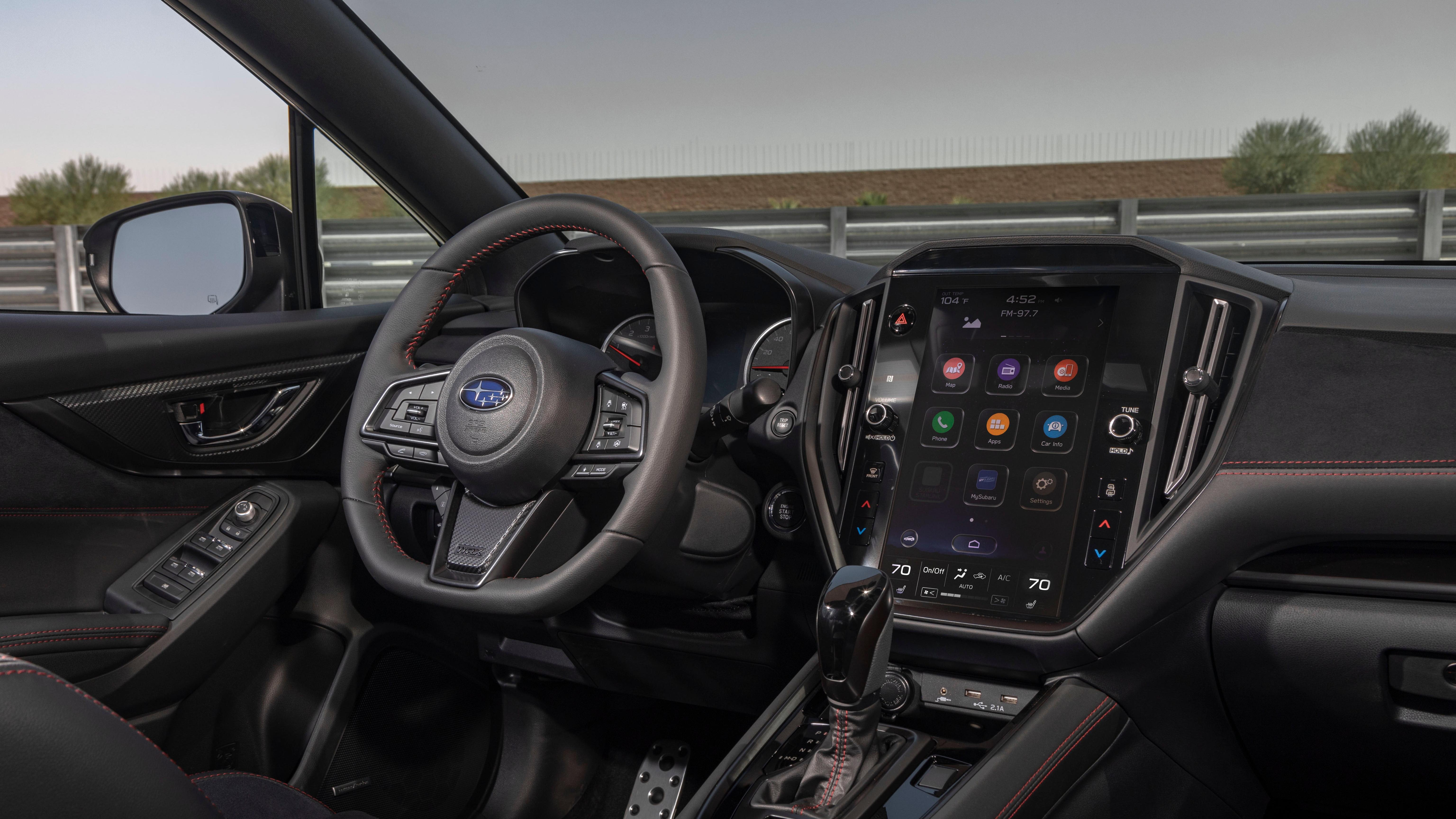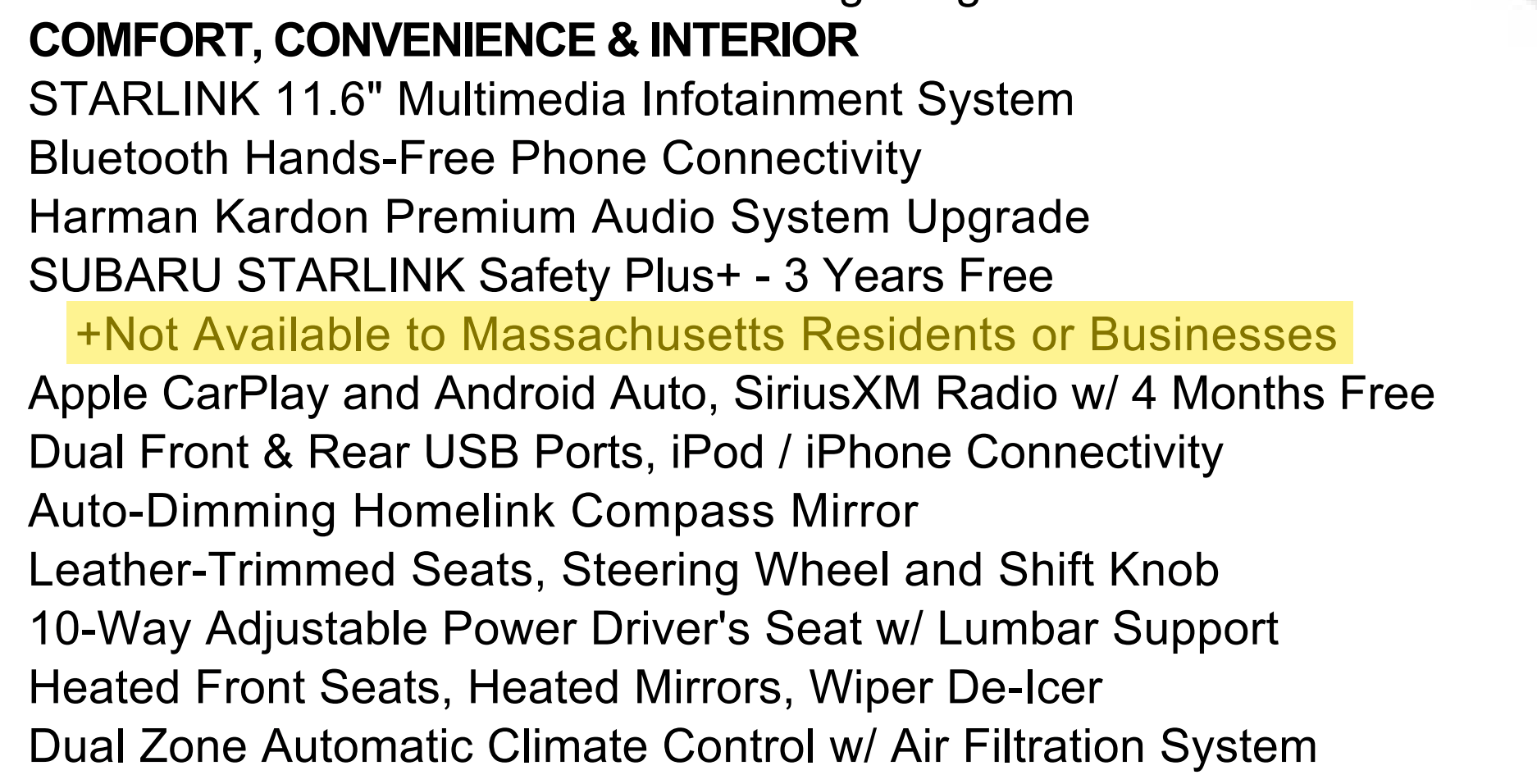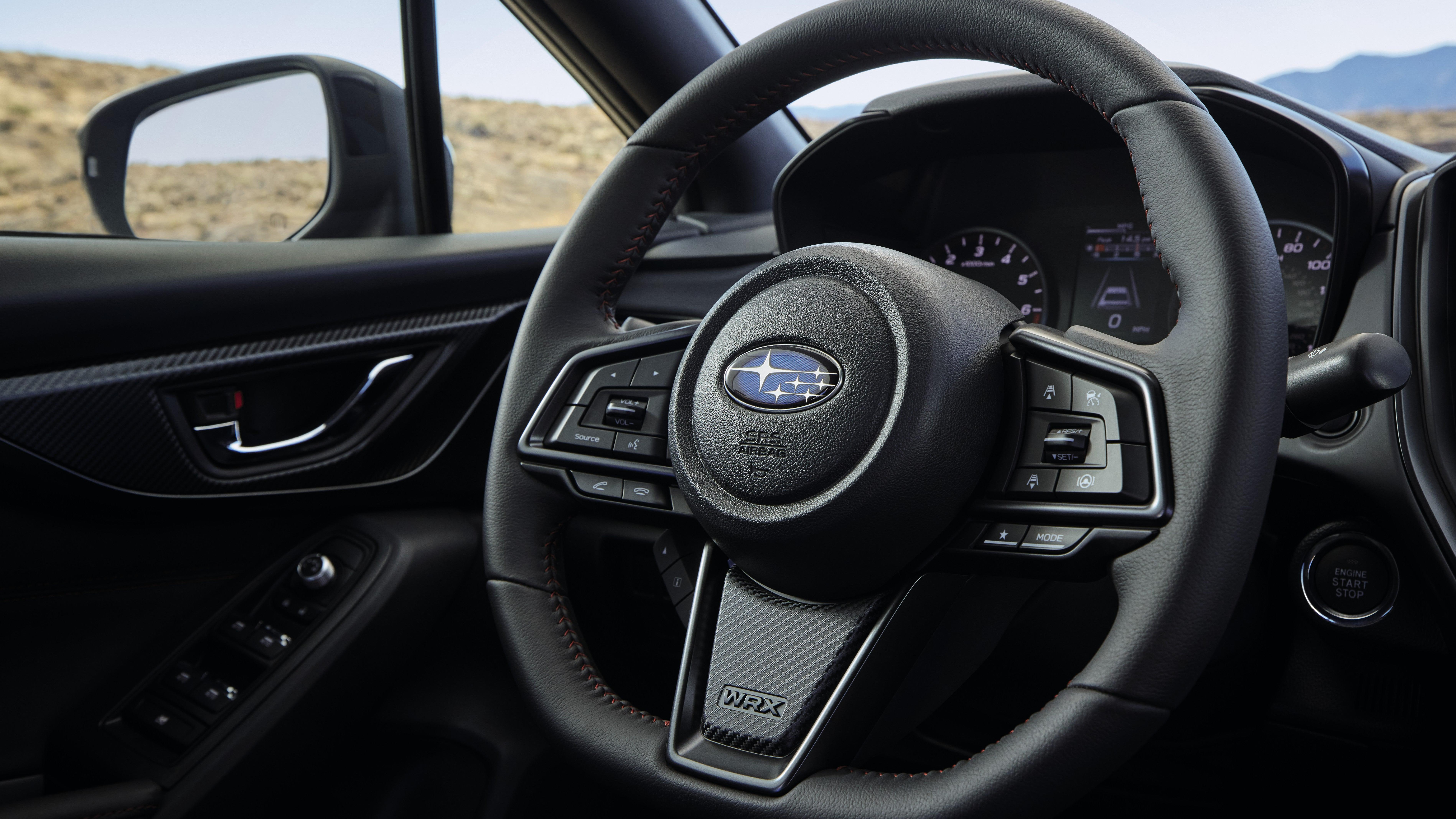Subaru Is Disabling StarLink In Massachusetts For Right-To-Repair Compliance
Subaru previously said that disabling the system for Massachusetts buyers was a "practical impossibility"
Right to Repair has been a major debate for years, spanning industries like electronics, cars, and even tractors. Last year, Massachusetts voters weighed in on the discussion by passing one of the nation's strongest right to repair laws — mandating that automakers make their telematics data easily accessible by third-party repair shops. Manufacturers claimed the mandate was impossible to meet, but Subaru seems to have found a way around it — by turning off StarLink completely for Massachusetts-delivered vehicles.
There's a lot going on here, so let's break it down. We'll start with the vehicle telematics data, which is information recorded by the car that's wirelessly sent back to the manufacturer or dealers. This is increasingly used in diagnostics, with cars reporting information about faults and malfunctions directly to a local dealership, where that data can be used to fix the problem. Sounds great, right?

Unfortunately, there's a downside to that sort of readily available diagnostic data — namely, who it's accessible to. If only dealerships can read that information, only they can fix the cars. It cuts out third-party repair shops or owners looking to get their knuckles greasy, and it forces people back to dealers for repairs. That's often a costly endeavor for the owner.
The Massachusetts law tried to change that, not by banning telematics but by mandating they be opened up to owners and independent shops. Manufacturers and dealers still get to collect data on cars, but they don't get to be the only ones who can read it. The bill was a godsend for the right to repair movement, but dealers and automakers fought tooth and nail against it.

The Alliance for Automotive Innovation, a group that represents nearly every automaker in the United States, argued that manufacturers can't open their telematics systems to the public. When the state's Attorney General suggested turning off the systems entirely, the AAI said it would be a "practical impossibility" to do so only on cars in Massachusetts.
And yet, that's exactly what Subaru has done. Any Subaru vehicle sold in the state, starting with model year 2022, will have its StarLink telematics system disabled. The company has essentially taken their ball and gone home — if they can't have exclusive access to repair data, then no one gets access.

Of course, telling the state government it's impossible to do something that you then proceed to immediately do is a bit of a legal faux pas. The Massachusetts Attorney General is looking to use Subaru's move as evidence in the AAI's suit against the state, to undermine their position that compliance with the 2020 law is impossible.
While Subaru has technically followed the letter of the law, since their vehicles in Massachusetts no longer have a telematics system that needs to be opened up, they've certainly disobeyed its spirit. Rather than making repairs simpler for owners and independent shops, Subaru has simply made it harder for their own dealers. It's an immature move, but it does technically level the playing field — by bringing it down, rather than improving things for everyone.
